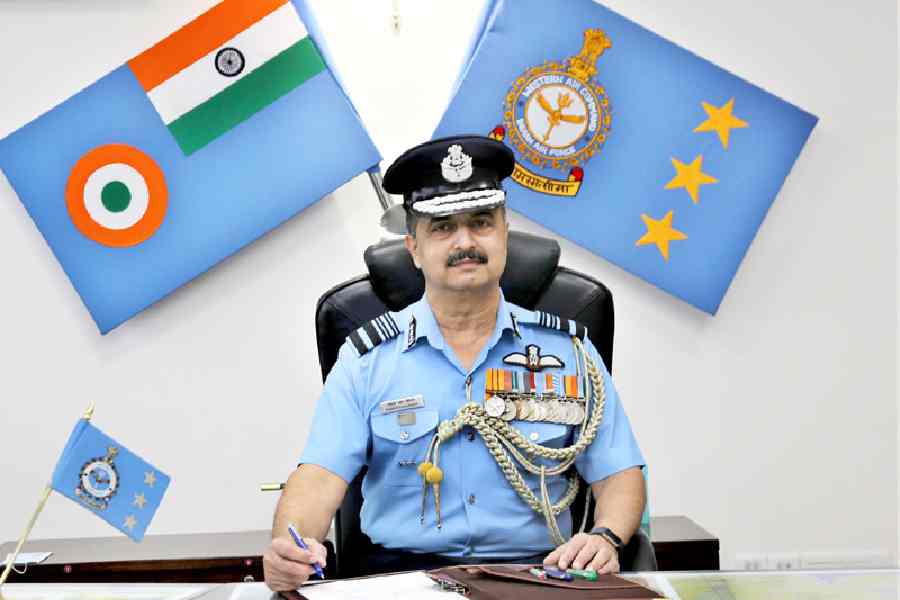IAF Chief Air Chief Marshal V R Chaudhari said on Tuesday the contemporary security landscape presents "multi-faceted challenges" from border disputes and terrorism to cyber threats and regional volatility, and India must invest in modernisation of its armed forces to navigate through these "turbulent times".
Delivering a keynote address at a seminar here, the IAF chief also said modern warfare is characterised by rapid technological advancements, asymmetric threats and the need for a comprehensive understanding of geopolitical, social and cultural contexts.
His remarks come amid the backdrop of evolving geopolitics with conflicts being seen in some of the regions of the world.
The seminar was hosted by the Indian Air Force (IAF), College of Air Warfare (CAW) and Centre for Air Power Studies (CAPS) at the Air Force Auditorium at Subroto Park to mark the culmination of the third Warfare & Aerospace Strategy Programme (WASP).
"This programme has enabled us to refine the definition of scholar warriors," the IAF chef said.
This "multi-faceted landscape" requires such military personnel who are not only adept at combat but also possess a deep understanding of the broader implications of their actions, the air chief marshal said.
Therefore, in my opinion, a scholar warrior is a military professional who combines intellectual acumen with combat prowess in today's "increasingly complex and dynamic security environment", Air Chief Marshal Chaudhari asserted.
To emphasise the point, the IAF chief also invoked the words of ancient Greek historian Thucydides, who said "The society that separates its scholars from its warriors will have its thinking done by cowards and its fighting by fools".
He said India's strategic culture is shaped by historical experiences and the "ever-evolving geopolitical environment".
It emphasises on strategic autonomy, caution and a "strong focus on territorial integrity", he added.
"The contemporary security landscape presents multi-faceted challenges from border disputes and terrorism to cyber threats and regional volatility. To navigate through these turbulent times and secure our national interests, India must invest in modernisation of its armed forces, strengthen strategic partnerships, promote indigenous defence production and adopt an integrated approach to both internal and external security," Air Chief Marshal Chaudhari said.
The event was also attended by various air warriors, retired senior officers of the IAF and scholars, among others.
The IAF chief underlined that India's strategic thinking can be traced back to the ancient texts like the Arthashastra written around the 4th century BC. It emphasised realpolitik and strategic pragmatism, "shades of which are visible today in every way we are dealing with contemporary issues".
In his address, he said the colonial experience taught India to remain "ever cautious and adopt a sovereign entity-centric approach" towards foreign policy and defence.
Atmanirbharta (self-dependence) and Make in India are, therefore, an "offshoot of our strategic culture and a key towards preserving national security", he said.
"Whether India has a strategic culture or not is a matter of opinion, however, realpolitik, statecraft and diplomacy have always been a part of our historical tapestry and have shaped contemporary geopolitics," the IAG chief added.
External Affairs Minister S Jaishankar, in his recent book, 'Why Bharat Matters', offers a novel approach to contemporary complex international situations by presenting this perspective through the lens of the epic Ramayana, he said.
Except for the headline, this story has not been edited by The Telegraph Online staff and has been published from a syndicated feed.











